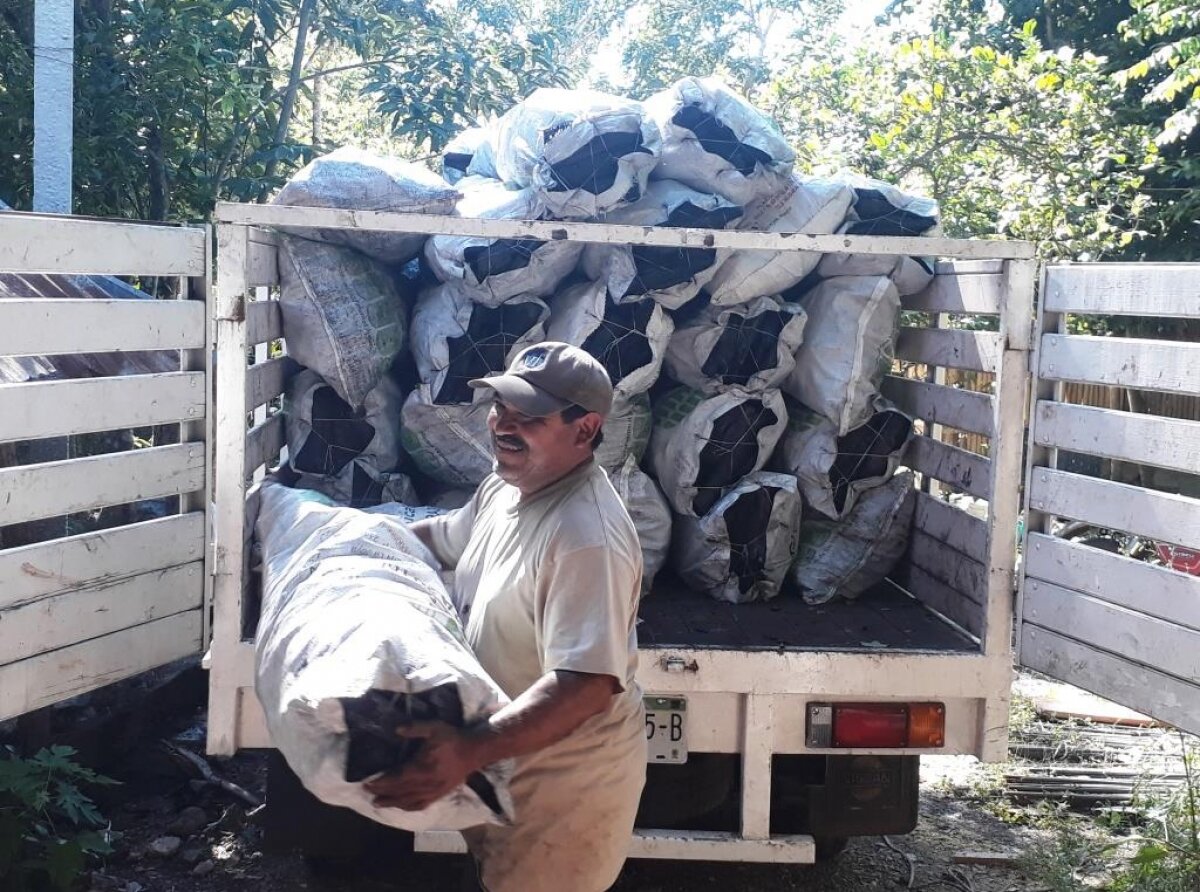An ejido in the Yucatán has been producing coal for more than half a century, and have transitioned from traditional production to a company with sustainable practices.
In the middle of the last century, members of the Yaxha ejido in the Yucatán began to produce charcoal with tropical woods. Its activity was rudimentary and without environmental regulations. Then in 2016, once they were legally constituted as a community organization called Carboneros del Roble S.C. by R.L. de C.V., they took the step forward to do things sustainably and legally.
The company is made up of 26 people, all of Mayan origin, and is located in the community of Chumbec, Sudzal in the state of Yucatán. They currently have an average production of about 40 tons of coal monthly.
The raw material is obtained from tropical species such as tzalam (Lysiloma latisiliquum) jabin (Piscidia piscipula) and kitamche (Caesalpinia gaumeri.)
Within recent years they have made several changes to the way they produce charcoal. First they regularized the cutting of the wood, since it was in the period from 2012 to 2015 that they obtained their Forest Management Program. This now contributes to sustainable development of their area of influence, of which they conserve approximately 600 hectares of forests representing the capture of carbon of approximately 12,415 tons.

In addition to the changes made at the level of the territory, to improve their product they went from the earth oven to the metal furnace, considerably optimizing the production of coal with less firewood, less time, and with a product free of impurities, such as earth.
They purchased scales for more accurate weighing and machines to sew the charcoal bags, offering a more professional presentation.

They also worked in an organized way to improve marketing. They managed to position their product at a fair price, creating better income for their families, as well as an increase in permanent and temporary jobs.
Currently, they sell locally and regionally, although they also carry out national wholesale shipments to the north and center of the country.
In the retail market they plan to enter new locations with presentations of one and three kilos for which they have already carried out packaging design and bagging tests.
Undoubtedly, the efforts of the company have yielded results and one of its successes was the approach with CONAFOR to receive support and technical advice on the handling of the machines, application of new technology regarding the coal furnace, training on administration in the companies, and obtaining business plans and feasibility studies to enter new markets.

